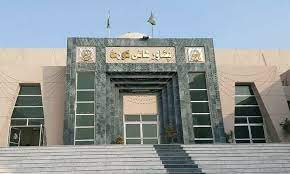
PESHAWAR: The Peshawar High Court on Thursday directed the Election Commission of Pakistan to respond to a petition seeking orders for it to allocate seats reserved for women and non-Muslims to the Sunni Ittehad Council (SIC) in the national, Khyber Pakhtunkhwa, and Punjab assemblies.
A bench consisting of Justice Ishtiaq Ibrahim and Justice Wiqar Ahmad took up for preliminary hearing the petition filed by a member of the Insaf Lawyers Forum, Azmatullah Afridi, who requested it to declare illegal the delay on part of the ECP in allocating those reserved seats to the SIC, which was joined by independently-elected members of the Pakistan Tehreek-i-Insaf after the Feb 8 general elections.
The bench directed the ECP to respond to the petition within seven days.
Petitioner insists ECP ‘illegally’ delaying allocation of those seats to Sunni Ittehad Council
The counsel for the petitioner, Shah Faisal Uthmankhel, contended that the ECP had deprived the PTI of its election symbol, so the latter challenged the move in the high court.
He added that the Peshawar High Court declared the decision of the ECP illegal, but the Supreme Court set the high court’s verdict aside on Jan 10 and restored the decision of the ECP.
The lawyer said that after the judgment of the apex court, the PTI’s nominees had to contest the Feb 8 general elections as independents.
He said that in the Khyber Pakhtunkhwa Assembly, the independent candidates backed by the Pakistan Tehreek-i-Insaf had a landslide victory in the elections, while they also won seats in the national and Punjab assemblies in large numbers.
Mr Uthmankhel said that the ECP had issued a notification informing the independently-elected MNAs and MPAs that they could join any political party within three days of the publication of election results in the official gazette.
He contended that under the Constitution, the seats reserved for women and non-Muslims in the national and provincial assemblies should be allocated to political parties on the basis of proportional representation of the number of seats won by a particular political party, and that also included the independently-elected candidates, who joined that party.
The counsel said that those independent legislators joined the Sunni Ittehad Council, which was registered with the ECP as a political party.
He argued that the Sunni Ittehad Council was entitled to be allocated seats reserved for women and non-Muslims in accordance with the provisions of the Constitution, Election Act, 2017, and Elections Rules, 2017.
Mr Uthmankhel, however, said that the ECP had been delaying the allocation of reserved seats to the Sunni Ittehad Council in clear violation of the Constitution and the law.
He pointed out that the KP Assembly’s session was called on Feb 28, whereas the sitting of the National Assembly was called for Feb 29.
The lawyer argued that every vote had assumed importance in the national and provincial assemblies, and therefore, the non-allocation of reserved seats to the SIC was an injustice to their members, who had joined that party.
He said that unless the national and provincial assemblies had full strength, holding elections to their key positions would be unconstitutional.
